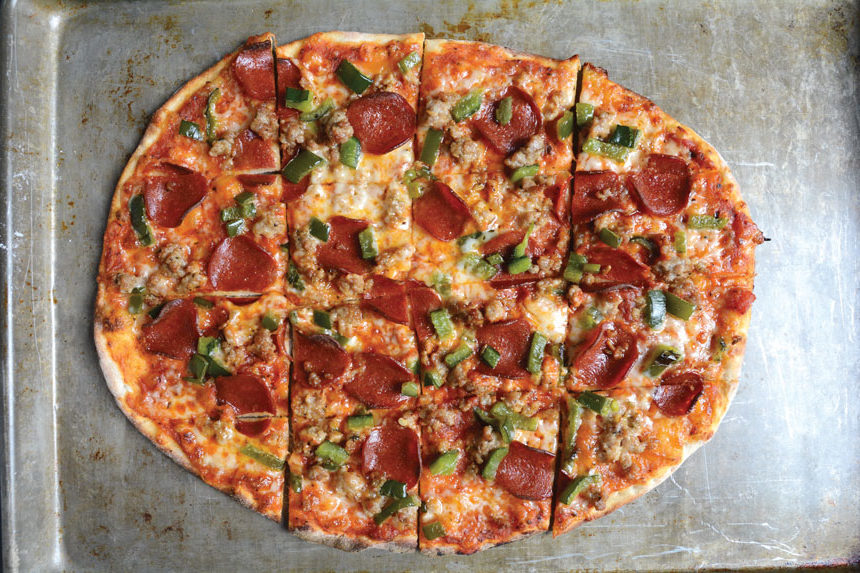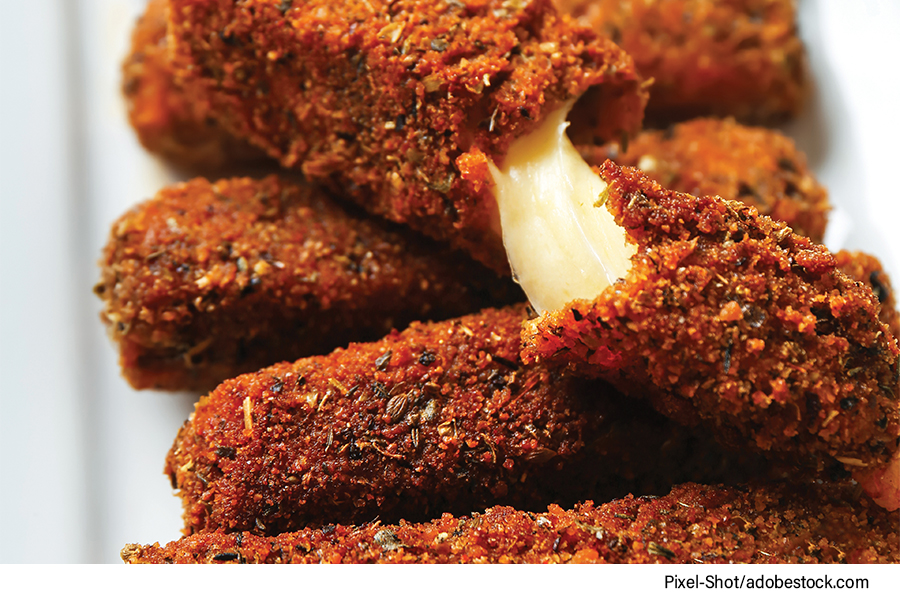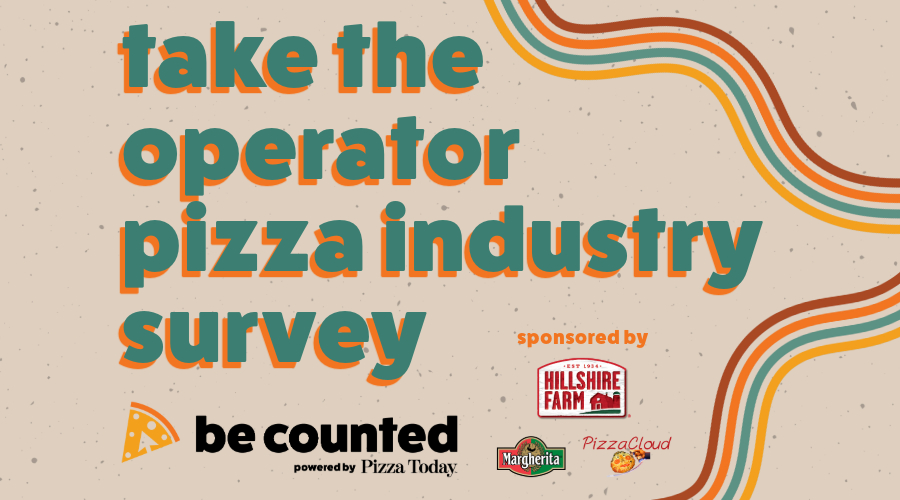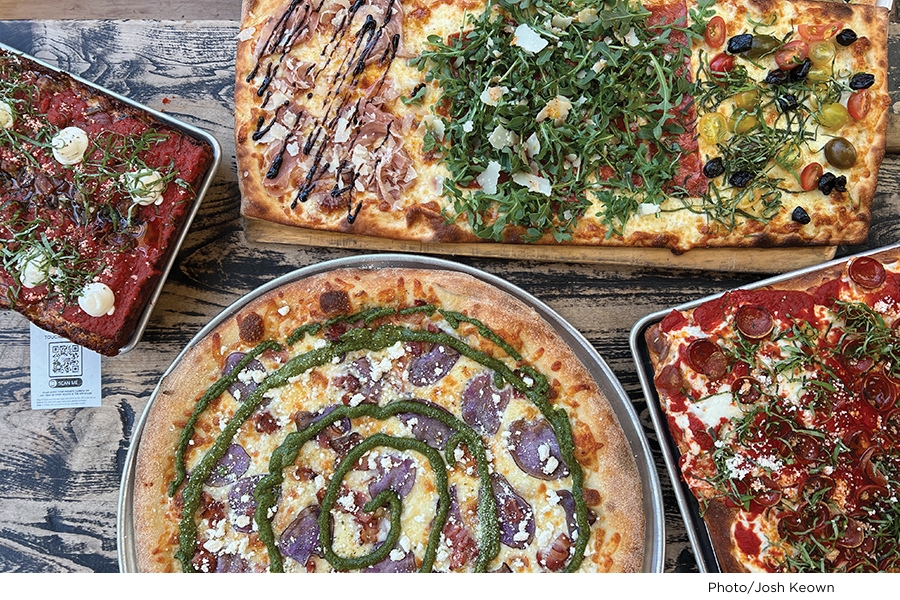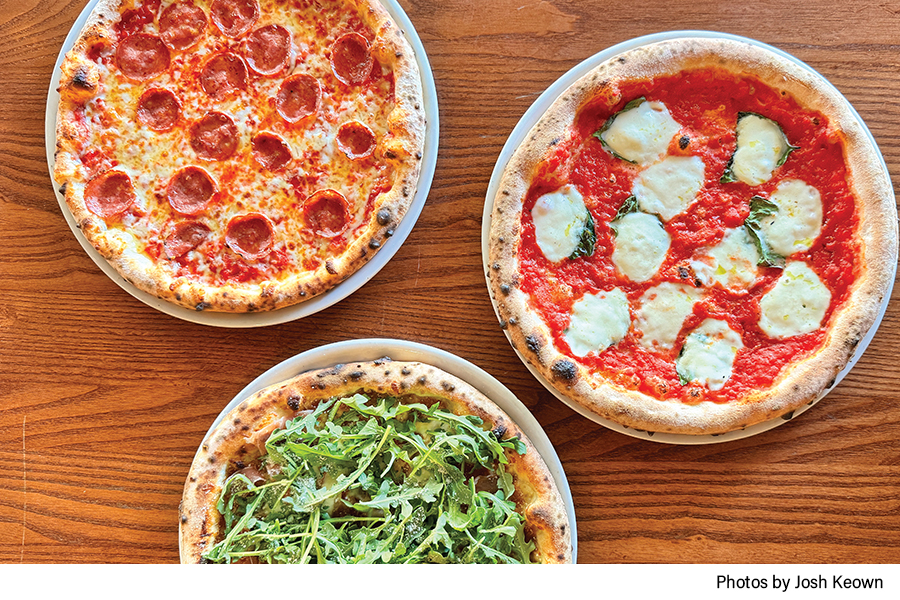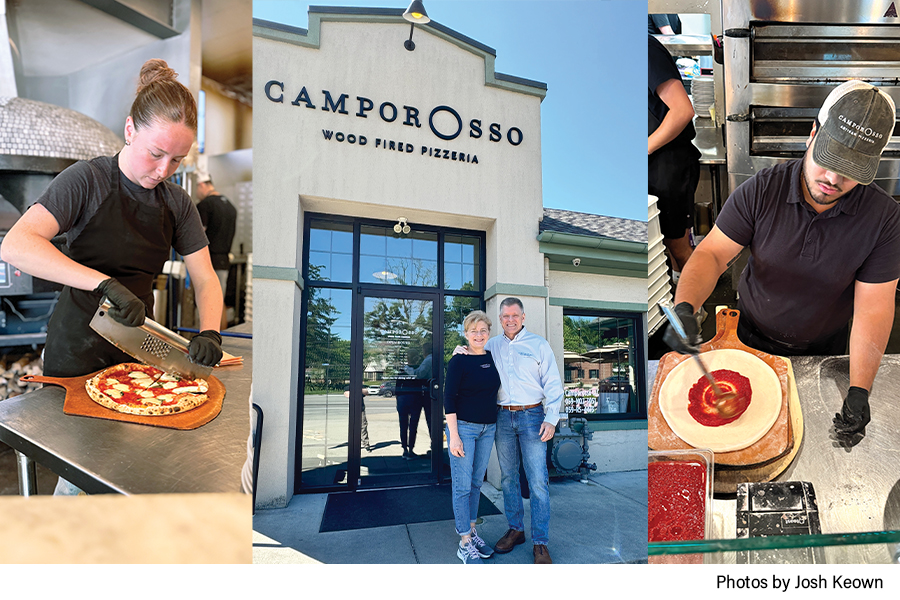Andrew Bellucci: memoriam and a call to action
According to the Center for Disease Control and Prevention, heart disease is the leading cause of death for men, women, and people of most racial and ethnic groups in the United States. High blood pressure, high blood cholesterol and smoking are key risk factors for heart disease. Several other medical conditions and lifestyle choices can also put people at a higher risk for heart disease, including: diabetes; overweight and obesity; unhealthy diet; physical inactivity; excessive alcohol use.
I first became aware of skilled pizza maker Andrew Bellucci during the pandemic while living in Japan, my home for the past 13 years. Even though I was born-and-bred in Brooklyn, he was never on my pizza radar. For me, in the pre-internet days, my pizzeria circle was very close to home: Trio Pizzeria on Avenue U; Bella Donna and Armando’s on Kings Highway, and if someone was driving, an excursion to L&B Spumoni Gardens. Even Difara was in a neighborhood far, far away. Lombardi’s in Manhattan was another world entirely.
When I came across the film Untitled Pizza Movie I was immediately hooked. In lock-down with a wife and two young kids, the prospect of a multi-part film about pizza sounded like salvation. There was no indication how watching the movie would be an emotional and exhausting experience. Being exposed to Andrew Bellucci’s craftsmanship and dedication and personal drama was captivating. I immediately reached out to him on Instagram, never imagining he would respond.
Of course, he responded. He was humble and open and brimming with gratitude for another chance to do what he loved. I followed his journey to open his restaurant and the resulting challenges. Andrew seemed like a person who followed his heart. The fact that he finally found a partner who understood his beautiful pizza obsessiveness, gave him the theater to perform his culinary magic, and kept him protected was a godsend. When I read the news of him dying I was profoundly impacted. Like the majority of people reading this, I never had the chance to eat a pizza he made. I never met him in person. But watching his passion and joy on social media was an inspiring gift. It felt particularly cruel that he was struck down in the midst of his ascension into the pantheon of pizzaiolos. But as I thought about it, looking at the poetic way he took his last breaths making his beloved clam pizza, I had another feeling. He died looking to the future, feeling hopeful and without regrets. He was doing what he loved and was recognized by those he cared about. Absolutely, too soon. But he left on a high note.
Andrew Bellucci’s passing also has me thinking about mortality. How do you stick around longer to keep exploring your craft and enjoy your life?
Being a pizza maker brings health risks that are unfortunately too easy to push out of your mind until it is too late. On your feet for hours and hours every day. Heavy lifting and repetitive motion. A diet that finds itself at the fattier end of the food pyramid. Smoking is not uncommon. A few drinks to wind down every night. And, oh yeah, the stress of making the business succeed. It makes Dom DeMarco’s 85 years seem like the outlier and Andrew Bellucci’s early demise more the norm.
Yet there are people in our midst who exemplify the idea that you can be a master of your craft while maintaining a healthy body and mind.
John Arena is universally viewed as one of the greats of the pizza game: delicious pizza; financial success; longevity in the business. There are not many who can match his achievements. When you add John’s openness, mentorship and support for the community, he is unparalleled.
“I began my professional career in pizza in 1967,” he says. :”Let’s face it- Pizza was largely a boy’s club, comprised of Italian immigrants and their sons. If you wanted to be known as “a good pie man” (the highest compliment), complaining or even suggesting that you were tired was out of the question. Taking a ‘mental health’ or personal day would have been a sign of weakness that was simply not considered.
“My earliest role model for pizza and everything else was my father. He was NOT typical of his generation. First of all, he never smoked, he drank just an occasional glass of wine, watched his diet, took time every night to relax with his family and to read and continue learning and adapting. The result is that my Dad at 94 years old is still active, healthy, and sharp.”
Rob Cervino, by any assessment, is a striver and overachiever. He is a leading producer and teacher in a rising pizza style in the US at his Taglio Pizza. He put himself out there on national television on CHOPPED, not only showcasing his pizza-making talents under intense pressure, but winning the day.
“I have so many friends in the pizza world, and unfortunately, I would say 90 percent are morbidly obese, overweight,” he says. “I myself was super overweight when I first opened. I got all the way to 260 pounds. I’m 5 foot 11 inches. So, I was a big boy. And my whole life I struggled with my weight, but I always kind of kept it off because I really wasn’t in the pizzeria scene as much as I was…once I opened my pizzeria, it was just a constant; that was just my lifestyle. And that’s the problem; our lifestyle revolves around eating good food. And unfortunately, and fortunately, the food that we make is not the healthiest…bread and cheese with very little greenery, very little lean proteins. It is not sustainable for the average person. And that’s why when you walk around these pizza expos, these guys unfortunately, they’re huge.”
Dr. Ethan Weiss is a cardiologist specializing in acute-care cardiology, coronary artery disease and general cardiology at University of California, San Francisco and a biotech executive. He is intimately aware of the issues and challenges of maintaining a healthy heart.
“I like to focus on things that are modifiable,” he says. “The most important modifiable risk factor remains cigarette smoking…I think the education around … smoking has been tremendous here in the United States. And I think it …largely accounts for the trends we’ve seen in the reduction of cardiovascular diseases. I think that’s one of the biggest — if not the biggest — single impact is the public health effort on getting people to not smoke as much.
I think it’s probably the single biggest modifiable risk factor.
The next things he believes people need to take special care of is their blood pressure and cholesterol level.
“There are three things: are you aware that you should be controlling your blood pressure and cholesterol level; are you trying to control it; and are you actually controlling it?,” he explains. “There’s a strong evidence basis that modifying the risk factor leads to a reduction in risk, which is what we really care about.”
Rob shared, for the first time, his very personal story:
“I went to my doctor for my yearly physical. I was I think 33. I just had a son. My doctor’s like, ‘your blood pressure’s through the roof. Your cholesterol’s up there. You’re a young guy. You just had a kid. You need to do something drastic,’” says Rob. “And he made me go see a weight loss specialist doctor. To which that doctor was like, listen, in the business you’re in, I’ve seen a million times; you need to something drastic.”
Rob went for gastric sleeve surgery, reducing his stomach size by 80 percent. He amazingly lost 70 pounds but now it is up to him to lead a healthy life and not regain the weight.
“I don’t really talk about my surgery a lot to a lot of people… I never really felt comfortable talking about it, only to like my close friends and family. But I think that if some of these pizza guys knew that there was someone out there in their circle that did this for myself, for my son, for my future, to be healthier. I think there are options out there. Because sometimes when you’re heavy the way these guys are, that’s a steep hill to climb, to lose that weight. It’s not easy especially you’re surrounded by pizza all day. But I am noticing a big problem. A big problem. It’s a struggle every day to keep the weight off.
“I fear for a lot of these guys lives because I think that sooner or later we’re going to start seeing these guys, unfortunately, pass away from their lifestyle.”
Unsurprisingly, exercise is a key component to better physical and mental health.
Dr. Weiss adds: “I think the hard part is getting started. Once you start, it’s easier. It starts with making time for it. You have to make it a priority…but make sure it’s something that you enjoy doing. If you hate running, then don’t start running right away. That doesn’t make any sense. There are lots of different ways to get some exercise and I think it makes sense that if you’re going to do it, you better enjoy it.
“I see a lot of guilt. People feel like ‘I should be doing this, I should be doing that.’ Walking is fine. Brisk walking is better. Walking up hills is even better. People focus on cardio-respiratory fitness, doing things that get your heart rate up like walking, running, jogging, rowing, swimming. People tend to neglect strength training and flexibility. And those are two things that, as we get older, are really important. It doesn’t have to be expensive, it doesn’t have to involve equipment or weights… strength training can be as simple as doing, sit ups and push-ups, squats, lunges.”
Read on for additional insights from our interviewees for this piece.
John Arena:
“I have always been a proponent of exercise and a healthy lifestyle as a vital part of any business plan. When I consult for anyone contemplating diving into the pizza business one of the first things I ask is “are you physically and emotionally prepared for the rigors of operating a pizzeria? Financial uncertainty and time away from family add to stress levels that can be a ticking time bomb for a number of potentially fatal diseases.
“I was fortunate in that right around the time I began to get serious about pizza I also started a lifelong study of martial arts. This discipline and pursuit gave me a foundation physically and mentally providing me with a key component to living a healthy life in and out of pizza. Balance. I found that its vital to have some outlet away from pizza that you can throw yourself into. Pick something that is a combination of physically and intellectually challenging. For me it was martial arts. Brian Spangler restores cars and pinball machines. Giulio Adriani surfs and plays golf. And surfs.
“About 9 years ago I was diagnosed with Parkinson’s Disease. I fully believe that building a lifelong foundation of health and good habits has extended my ability to contribute to our industry and helped me to slow the progression of the disease.
“Whatever your present condition it is not too late to start. We say to ourselves “I want to exercise, diet, and see a doctor but I just don’t have time to fully commit” So what? You don’t have time to train for a marathon? Take hold of your spouse’s hand and go for a walk around the block. Lace up your running shoes and do just a little something today and then maybe tomorrow a little more and a little more. You missed a day? Good for you. Reset and start again.
“It’s not easy to directly measure your stress level. But you know when you are feeling it. What you may not think about is the detrimental effect stress is having on you.”
Dr. Weiss:
“There were some interesting observational epidemiology studies done during periods of extreme stress, where after an earthquake or a World Cup loss, or somebody gave up a big goal, that people in that people in that country would have an increased rate of heart attacks.”
Rob Cervino:
“Making pizza a high stress business, right? It’s those dinner rushes and the ordering and the staffing.
“You can’t medicate yourself with alcohol or and cigarettes; it’s eating healthy, going to the gym, taking time off from the pizzeria. t’s not sustainable to work there seven days week, open to close.
“It’s work, work, work and then you die and you never see your family. And that’s not right. And the new age coming up, I think we’re realizing that. I always take time to go on vacation. I always take time for myself. I always take family time. You have to do that. You can’t be stuck in your pizzeria. You need to trust people. You need to delegate it. Unfortunately, like I think that’s where Andrew Bellucci, like if you went to Bellucci’s at any given time he was there. You know, a lot of my customers complain that if they come to Taglio at any given time, he’s like, I’m not there that much or I’m in the basement or I’m doing the business side of things. You have to let other people make the pizza.”
Mental health is key. Some guys are too proud to talk to somebody. Talk to a therapist, talk to somebody, work out those emotional problems because being trapped in a pizzeria all day could get you in a headspace that’s not normal.
Today is a great day to start being aware of the various things that are impacting your life and taking steps to being healthy.
Rob Cervino: “(I have) a blood pressure machine at home. Yearly physicals are super important. It’s every October I go to the doctor. Full blood work, full health scan, full cholesterol, everything.
I feel good. I feel younger, I look younger, I could work faster. Honestly, I’m more efficient now. And I’m healthier.”
Jon Arena: “It’s very tempting to say, oh, my grandmother lived to 100 and she smoked four packs of cigarettes a day. I mean, you know, you can sort of find stories like this. And there’s no doubt that there are people who are blessed with this remarkable ability to get away with things that a lot of the rest of us can’t get away with. But you don’t know that, and you won’t know that until it’s too late.
people tend to find religion around things, around health after it’s gone wrong.
what we don’t want to do is, is wait for that alarm to go off.”
Let’s remember Andrew Bellucci for many things: as a great pizza man; the embodiment that there are indeed second acts in American lives; and that protecting your physical and mental health is the prime responsibility you have to yourself, your family, your staff, your customers and your community.

